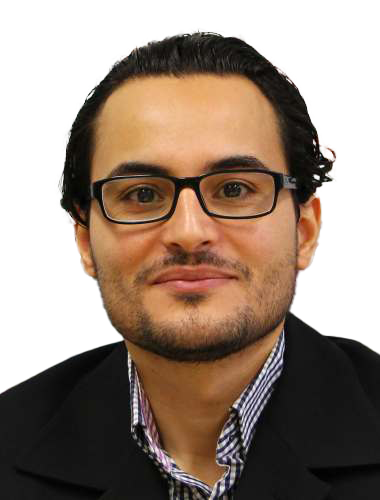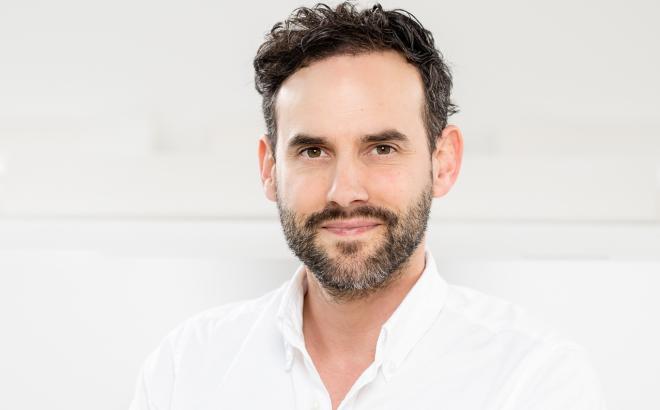Bahil Ghanim, Thoracic Surgeon
Looking behind the disease
“As surgeon, it’s my task to cut out the disease. As researcher, I want to know why and how the disease developed,” Senior Physician Dr Bahil Ghanim, PhD of the Clinical Department of General and Thoracic Surgery at the University Hospital of Krems explains. In his opinion, medicine and research have always belonged together: “I’m not satisfied by simply fulfilling specifications, I’ve always wanted to look behind the scenes. Thoracic oncology in particular attracted my attention and interest right from the beginning.”
After completing his studies at the Medical University of Vienna (MUW), Dr Ghanim immediately became a faculty member of the Institute of Cancer Research at the MUW. In 2011, he was appointed assistant doctor to the MUW’s Clinical Department of Thoracic Surgery, working as research associate at the Ludwig Boltzmann Institute for Lung Vascular Research in Graz at the same time. In 2015, Dr Ghanim completed his PhD studies at the Institute of Cancer Research and in 2017, he moved to the thoracic surgery department in Krems. In his career, the researcher has not only participated in many projects, but was also awarded a multitude of prizes. His first award was the “Young Investigator Award” at the 2009 Austrotransplant Convention, followed by the Wolfgang Denk Award of the Society of Heart and Thoracic Surgery in 2013 and the Theodor Billroth Award in 2014 to appreciate his work on the inflammation marker fibrinogen as prognostic predictor in mesothelioma patients. In 2015, he received a research fund granted by the Margaretha Hehberger Foundation for his project on solitary fibrous tumours of the pleura. He was given the Science Award of the Austrian Society of Surgery in 2019 and the Science Award of the Medical Society of Lower Austria in 2020 for a study on biomarkers as prognostic predictors.
Senior Physician Ghanim has continued to do research on prognostic predictors. “Our results allow us to predict what the journey with our patients will look like. We can save them from unnecessary treatments and choose the best possible treatment option based on a personalised medicine. For some patients, surgery simply is not the best choice, while for others it’s the most sensible. Our research results shall enter clinical everyday life. However, you always have to keep in mind that this may take its time,“ Dr Ghanim says about his day-to-day work into which research definitely found its way. He highly appreciates the structure of the university hospital linked to the Karl Landsteiner University. “I feel very good in my department. My daily work as doctor is accompanied by a positive spirit for research activities. Associate Prof Prim Dr Elisabeth Stubenberger, the head of our department, supports our projects. Research is always team work, you can’t do it alone and I am very glad to have young colleagues who are interested in doing research. In the meantime, I slipped more into the role of a senior author than being a single author, which is a new and nice experience,” Dr Ghanim sums up. “Not every physician is interested in research and that’s completely okay. On the other hand, some show a really strong interest and it’s important to support these young researchers. In research, it is allowed, even essential to be always curious and critical.”
At present, the thoracic surgeon works on a joint study on in-vitro agents with his former department at the MUW. “We test different toxins in cell lines we derived from tumours of the pleura,” the physician and scientist explains. At the University Hospital, Dr Ghanim’s research focus remains on predictive biomarkers in lung cancer and mesothelioma patients. The highly committed physician scrutinises his patient group and divides them by inflammation, mutation and L/V status and tumour staging. “I understand our treatment guidelines as good friends, while we still try to improve, intensify and re-specify them every day.” After being reviewed, the latest research results of the University Hospital of Surgery at the Krems location will be implemented in the treatment guidelines in the ideal case. For Senior Physician Dr Ghanim, PhD, his habilitation will be the next step on his ladder of success. “But like in research, you also need a good portion of patience here,” says Dr Ghanim with a laugh.
Link to the KL research information system KRIS

OA Clin. Ass. Prof. PD Dr. Bahil Darson Ghanim PhD
Division of General and Thoracic Surgery (University Hospital Krems)




